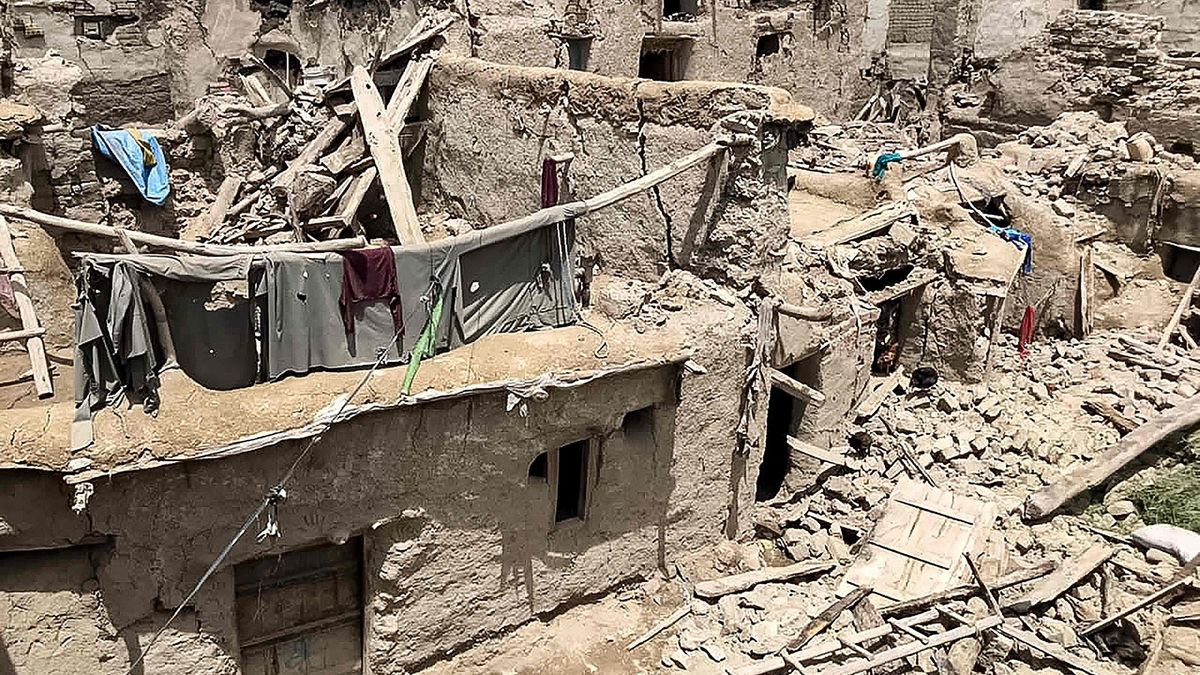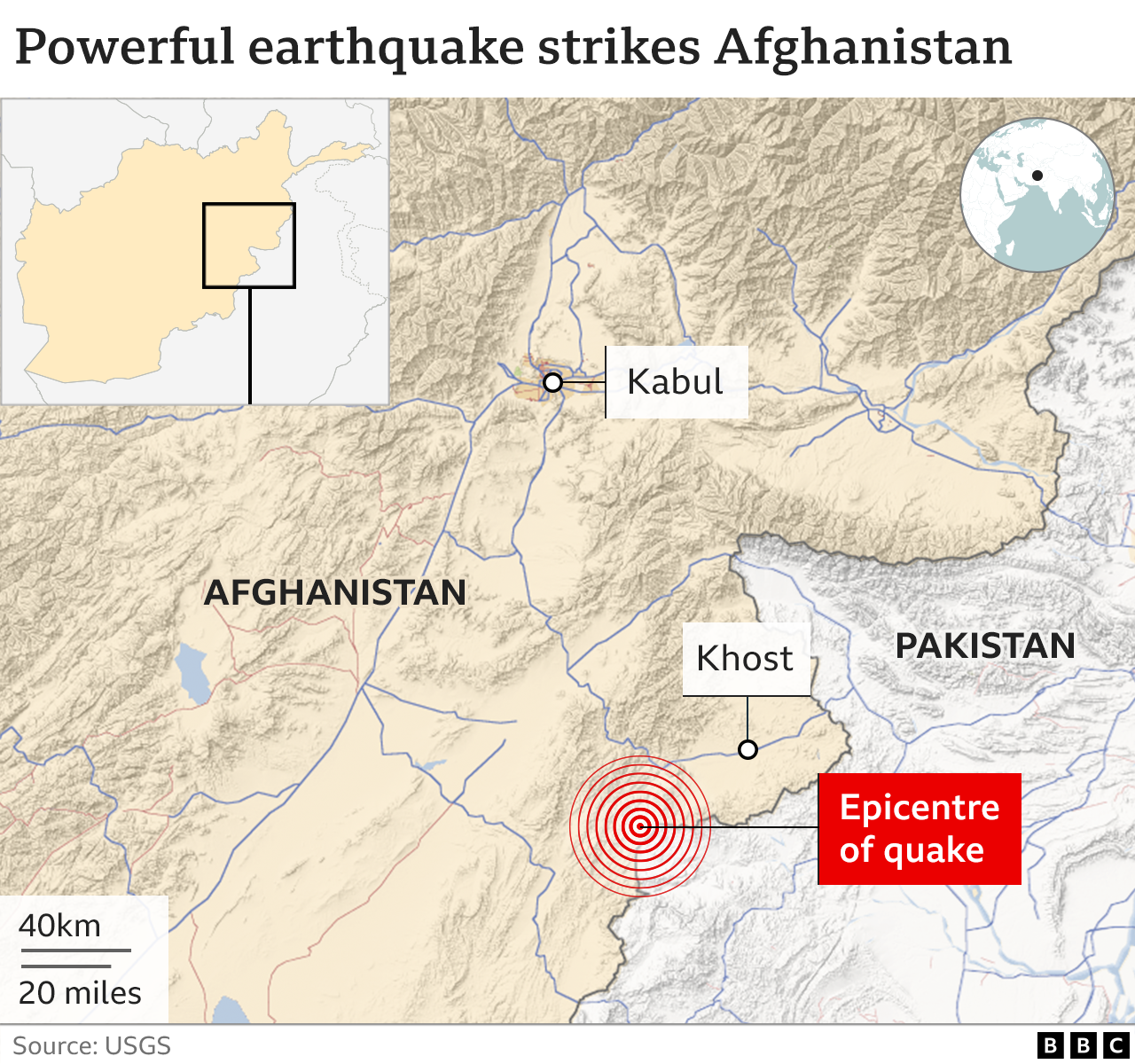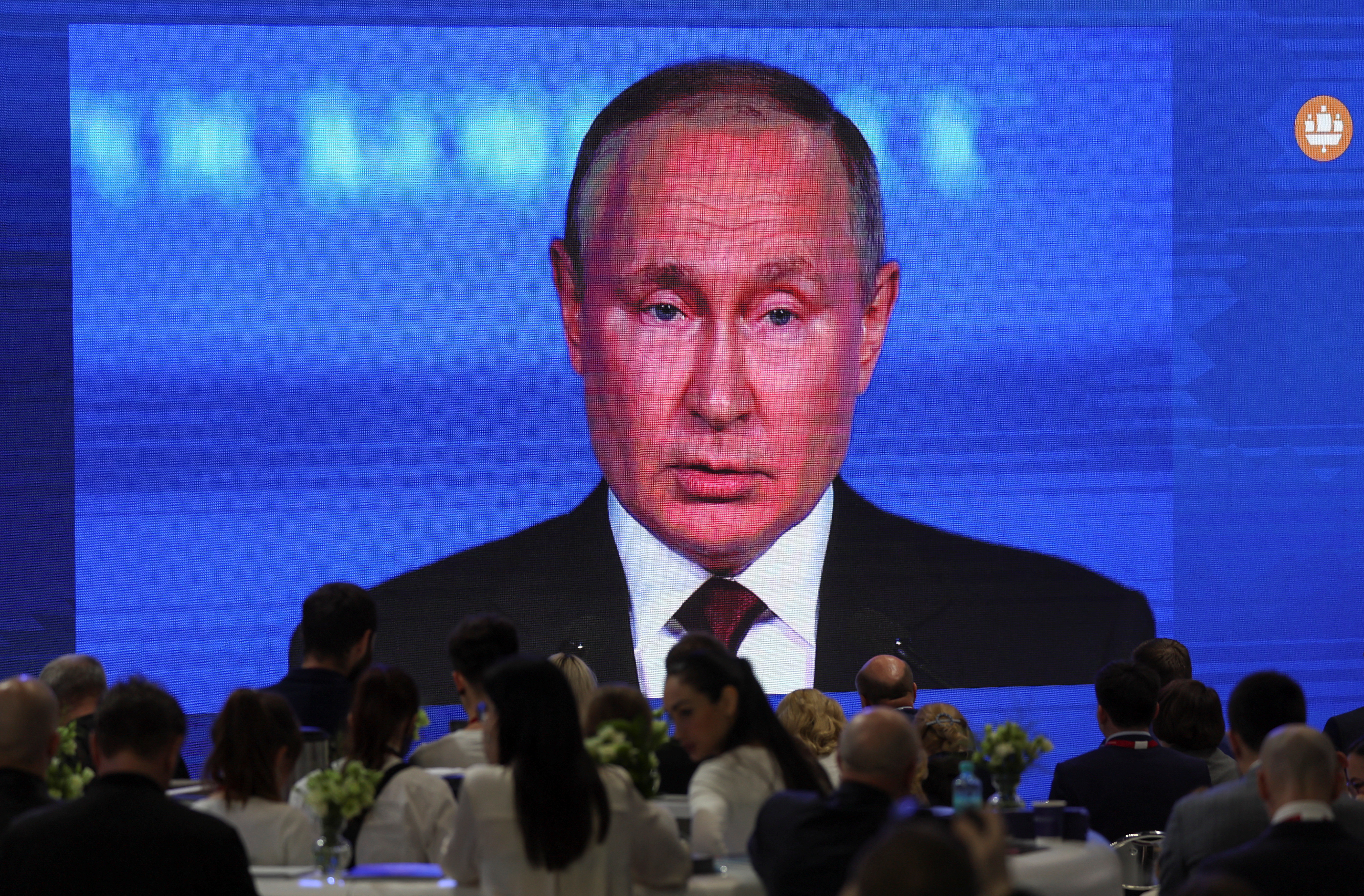From Afghanistan’s deadly earthquake to the BRICS summit – Here’s your June 23 news briefing

A few minutes every morning is all you need.
Stay up to date on the world's Headlines and Human Stories. It's fun, it's factual, it's fluff-free.
To start off, we’re looking into:
Afghan earthquake
A powerful earthquake has hit Afghanistan and killed over 1,000 people, injuring an estimated 1,500 more, with officials saying that the death toll is expected to rise. The EMSC put the earthquake’s magnitude at 6.1, but the USGC said it was 5.9. The earthquake hit around 1:30 a.m. local time, when many were at home asleep, around 44 kilometers from the city of Khost. Quake tremors were also felt in the capital Kabul and as far away as Pakistan and India.
The Taliban’s supreme leader, Haibatullah Akhundzadah, issued pleas to the international community “to help the Afghan people affected by this great tragedy and to spare no effort.”
This comes during a time when the people of Afghanistan are already struggling, with over a third of its population unable to meet their basic needs. And because poorer nations have weaker infrastructure and resources, they’re more vulnerable to natural disasters. The ongoing conflict in the region has also made it virtually impossible to improve their infrastructure.

US Senate agrees to fast-track new gun law
After a horrific bout of mass shootings in New York, Texas, California and Oklahoma, the US Senate is fast-tracking a bill that, if passed, will be the most significant gun legislation since the 90s.
The bill called the Bipartisan Safer Communities Act would pour billions of dollars into protection for schools and mental healthcare resources and create incentives for states to individually enact so-called “red flag laws” (which allow the police to take guns away from people who are considered dangerous). It will also close the “boyfriend loophole” by making sure more domestic violence abusers are included in federal laws banning them from purchasing guns. It also allows for more extensive background checks on people under 21.
But it doesn’t go as far as Democrats have been pushing, excluding an increase in the legal age to buy a gun, bans on assault-style weapons or required waiting periods for purchasing guns. The National Rifle Association was quick to voice its opposition, with many Republican politicians following suit.
The bill’s full text was released on Tuesday, and the Senate voted 64-34 to fast-track it, meaning that a full vote could come next week. Because the bill was created by a bipartisan group of 10 Republicans and 10 Democrats, the bill has a fair chance of passing.
The BRICS summit

Putin is set to join a meeting Thursday with members of BRICS, a group including Brazil, Russia, India, China and South Africa that sees itself as a voice for developing countries. This year, the event is being hosted virtually by Beijing and will mark Putin’s first major multilateral meeting since the beginning of the Russia-Ukraine war around four months ago.
None of the group’s members has openly condemned Russia’s invasion of Ukraine, and China and India have deepened their ties with Russia despite the piles of sanctions mounting against the country’s economy. Although Brazil voted in favor of the UN’s emergency meeting held on the invasion, President Jair Bolsonaro said the country would remain “neutral,” later adding that Ukraine had “trusted a comedian with the fate of a nation.”
Kicking off this year’s summit, President Xi suggested that NATO was responsible for antagonizing Russia and criticized Western sanctions for global economic suffering, according to state media.
But it’s not just the developing nations against the West. The dynamic between the group’s members, like China, Russia and India, isn’t that clear-cut, either. India and China are still trying to sort out the world’s longest disputed border, where their troops have clashed on multiple occasions. India is also estimated to be between 60% to 85% dependent on Russian arms, but ideologically, the world’s largest democracy is also forming deeper security ties with the US, joining some key dialogues.
To end, we’ll look into:
Those pesky cameras aren’t the solution to a productive meeting
Be real: how many times have you been on a Zoom call with a button-up shirt or a nice blouse (and, of course, sweatpants or gym shorts off-camera) so that you could look presentable for a meeting that could have been an email? How many times have you wished you could keep the camera off altogether?
Experts say that the expectation of an “all cameras on” Zoom meeting can be problematic, and despite what employers believe, it can cause productivity loss.
See, employers are tied to this idea of cameras on calls because it most accurately reflects what it’s like to check in on people in an office, where a manager might wander around a bit to make sure everyone’s getting stuff done. And at the beginning of the pandemic, it was even reasonable since part of what we got out of Zoom calls was that human interaction we were missing in lockdown.
But now, experts say that having cameras on can cause more harm than good because people focus less on the meeting and more on how they look or trying to interpret social cues that are easier to understand in person. This can be exhausting, leading to “Zoom fatigue,” which is the tiredness you might feel after a long period of trying to focus on a meeting and deal with all of the complicated social things you’re used to dealing with in real life.
So, for plenty of people, a cameras-off approach might be the way to go since it allows employees to reduce their Zoom fatigue and even may let them do other productive things, like take notes or look through other tabs to see what they can bring to the conversation.
Basically, just because we like to wear our sweatpants and have messy hair at our home office doesn’t mean we’re any less productive.
In other news …
📉Stocks, oil and Bitcoin: Shares in the APAC region traded lower on Wednesday with fears about the economy still looming over everyone’s heads. In the US, major stock indexes ended slightly lower after Fed Chair Powell said that, while it was painful, the central bank would remain “strongly committed" to bringing down inflation. This comes at a time when both Citigroup and Deutsche Bank have said a recession is likely, with the CEO of Deutsche pegging the possibility at 50%.
US crude oil prices fell, settling at US$106.19 a barrel. Brent was down US$2.91 to settle at US$111.74.
Bitcoin fell under US$20,000 to US$19,898.20 at one point.
💸Inflation in the UK: On Wednesday, the UK saw inflation at a 40-year-high of 9.1%, setting the scene for another rate hike from the Bank of England after a fifth consecutive hike last week by the central bank.
💔Robb Elementary School: The mayor of Uvalde, Texas, has said that Robb Elementary School, where a gunman killed 19 students and two teachers, will be demolished, saying, “You can never ask a child to go back or teacher to go back in that school ever."
🤴Saudi Arabia and Turkey ties: Saudi Prince Salman visited Turkey’s Erdogan in Istanbul for the first time since the murder of journalist Jamal Khashoggi, a vocal critic of Salman, in 2018. Erdogan didn’t directly accuse Salman of the killing but said that the order came “from the highest levels of the Saudi government."
💵Sri Lanka’s collapse: Sri Lanka’s economy has completely collapsed, according to the nation’s Prime Minister Wickremesinghe. The country isn’t even able to pay for imported gas because its oil companies owe so much money. Sri Lanka is working on securing a deal with the IMF by the end of July.
📱Fintech in China: We mentioned that there was chatter about Jack Ma’s Ant group’s IPO revival, which China has denied. But now, according to several people familiar with the situation, the company is set to apply for a key financial license this month. This comes at a time when President Xi chaired a Wednesday meeting approving “healthy" development in the fintech sector.
💉Monkeypox spread: Singapore has spotted its first case of Monkeypox involving a British man who tested positive on Monday after getting rashes and headaches. A case has also surfaced in South Korea.
🚭An end of an era for Juul in the US: WSJ first reported that Juul’s e-cigarettes would be taken off the market as early as this week by the US FDA. So now, some vapers are mass buying and hoarding the product in preparation.
🕶Apple AR progress: Apple has been tight-lipped about the augmented reality product it’s been working on over the past few years, unlike Zuck, who gave fans and skeptics alike a tour of Meta’s lab and toys. But adopting a slight pivot, CEO Tim Cook did an interview with Chinese state media, telling fans in China to “stay tuned and you will see what we have to offer."
👛Meta’s metaverse wallet: Facebook Pay has officially become Meta Pay, according to Zuck. But that’s not what he wants you to get all giddy about, no. Meta Pay marks the start of the wallet to the metaverse, letting users manage their payment methods and identities while navigating their digital selves and lives.
Written and put together by Jake Shropshire, Christine Dulion and Krystal Lai




Comments ()